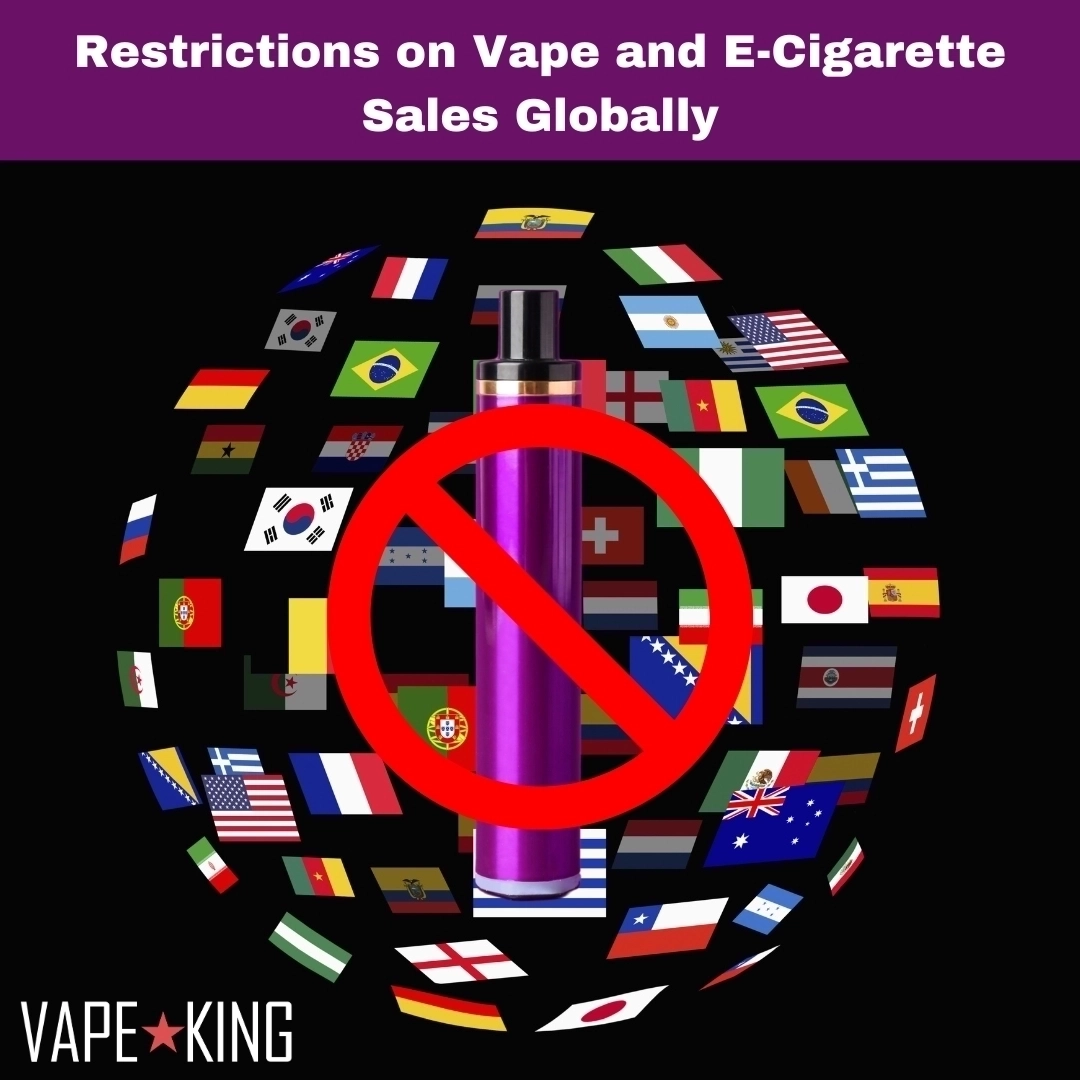Restrictions on Vape and E-Cigarette Sales Globally

A recently unveiled initiative by the United Kingdom to prohibit the sale of single-use vapes represents one of the latest endeavors by nations to restrict access to e-cigarettes in a bid to deter their usage among minors.
In the United States, electronic nicotine delivery systems have been a focal point of public health concerns since their introduction to the market in 2007. Monthly e-cigarette sales in the nation surged from 15.5 million units in 2020 to 22.7 million in 2022, according to a recent study referenced by the Centers for Disease Control and Prevention, making them the predominant tobacco product used by youths.
While advocates argue that e-cigarettes can aid traditional cigarette users in quitting, critics argue that the packaging of such products—alongside the fruit and confectionery flavors in which they are often presented—appeals to minors, who may develop nicotine dependencies and expose themselves to other harmful substances by using these devices.
The Food and Drug Administration oversees e-cigarettes in the US, granting authorization to products on a case-by-case basis following an evaluation of their risk of youth use. To date, the FDA has endorsed only 23 e-cigarette products and devices, effectively rendering unauthorized products, often found on store shelves, illegal, with manufacturers and retailers subject to enforcement actions. However, enforcement has proven challenging: Citing data from analytics firm Circana, The Associated Press reported late last year that over 11,500 distinct vaping products were being retailed in US stores, up from 9,000 products in June.
Globally, up to 121 countries or territories regulate electronic nicotine delivery systems, as per a 2023 World Health Organization report. This includes 33 countries that have enacted bans on their sale and 87 that have implemented measures such as age restrictions on sales, advertising prohibitions, and bans on vaping in indoor public spaces.
E-Cigarette Prohibitions Worldwide
Internationally, 33 nations have implemented bans on the sale of electronic nicotine delivery systems (ENDS), encompassing e-cigarettes and vaping devices. Additionally, another 87 countries have established regulations governing the sale of ENDS.
Source: World Health Organization • Chart: Julia Haines/U.S. News & World Report
Data derived from a July 2023 report. The sale of ENDS is also prohibited in the occupied Palestinian territory, as per WHO. While Mexico's ban was reportedly ruled unconstitutional, it appears to remain largely intact.
Nations That Prohibit the Sale of Vapes and Electronic Cigarettes:
- Argentina
- Brazil
- Brunei Darussalam
- Cabo Verde
- Cambodia
- North Korea
- Ethiopia
- Gambia
- India
- Iran
- Iraq
- Jordan
- Laos
- Malaysia
- Mauritius
- Mexico*
- Nicaragua
- Norway
- Oman
- Panama
- Qatar
- Singapore
- Sri Lanka
- Suriname
- Syria
- Thailand
- Timor-Leste
- Turkey
- Turkmenistan
- Uganda
- Uruguay
- Vanuatu
- Venezuela
(*Mexico's ban reportedly was deemed unconstitutional but appears to remain broadly in place.)
As per the report, 74 countries, accounting for a total population of over 2 billion individuals, have no regulatory framework concerning electronic nicotine delivery systems. Among these, 40% of middle-income countries and 79% of low-income countries have not implemented any regulatory measures.
In conclusion, the global landscape surrounding the sale and regulation of vapes and electronic cigarettes reflects a concerning trend of restrictive measures that may hinder access to a safer alternative to traditional smoking. While some countries have opted for outright bans on these products, others have yet to enact comprehensive regulations, potentially depriving millions of individuals of a valuable harm reduction tool.
The disparities in regulatory approaches among nations underscore the need for a balanced and evidence-based approach to vaping policy. While it is crucial to address concerns about youth access and product safety, overly restrictive measures risk limiting access to vaping as a harm reduction tool for adult smokers seeking alternatives.
Moving forward, it is essential for policymakers to engage in nuanced discussions that consider both the potential risks and benefits of vaping. By fostering an environment that promotes harm reduction while implementing measures to protect youth and vulnerable populations, we can strive towards a more balanced and effective approach to vaping regulation on a global scale.
No posts found
Write a review


